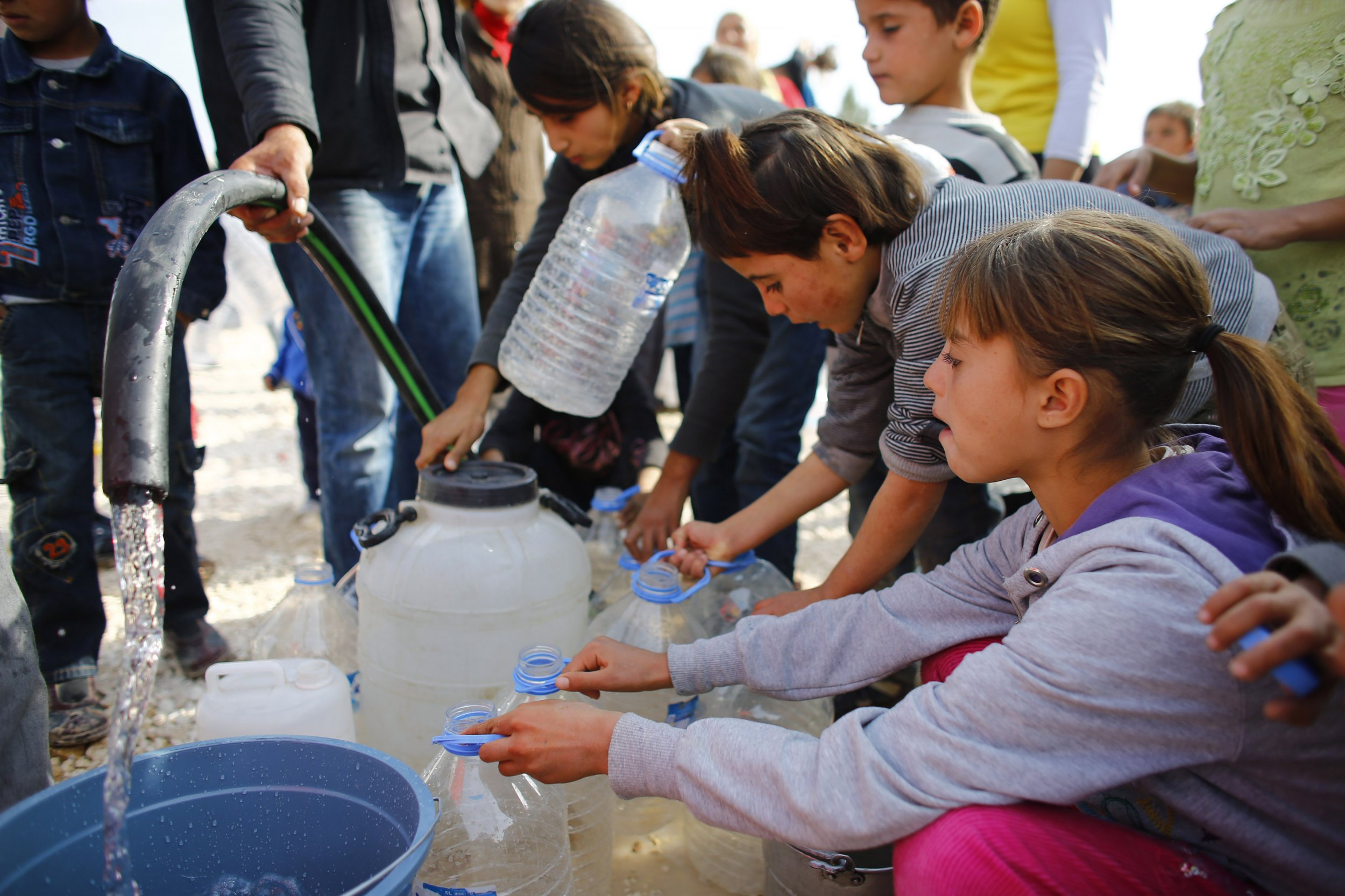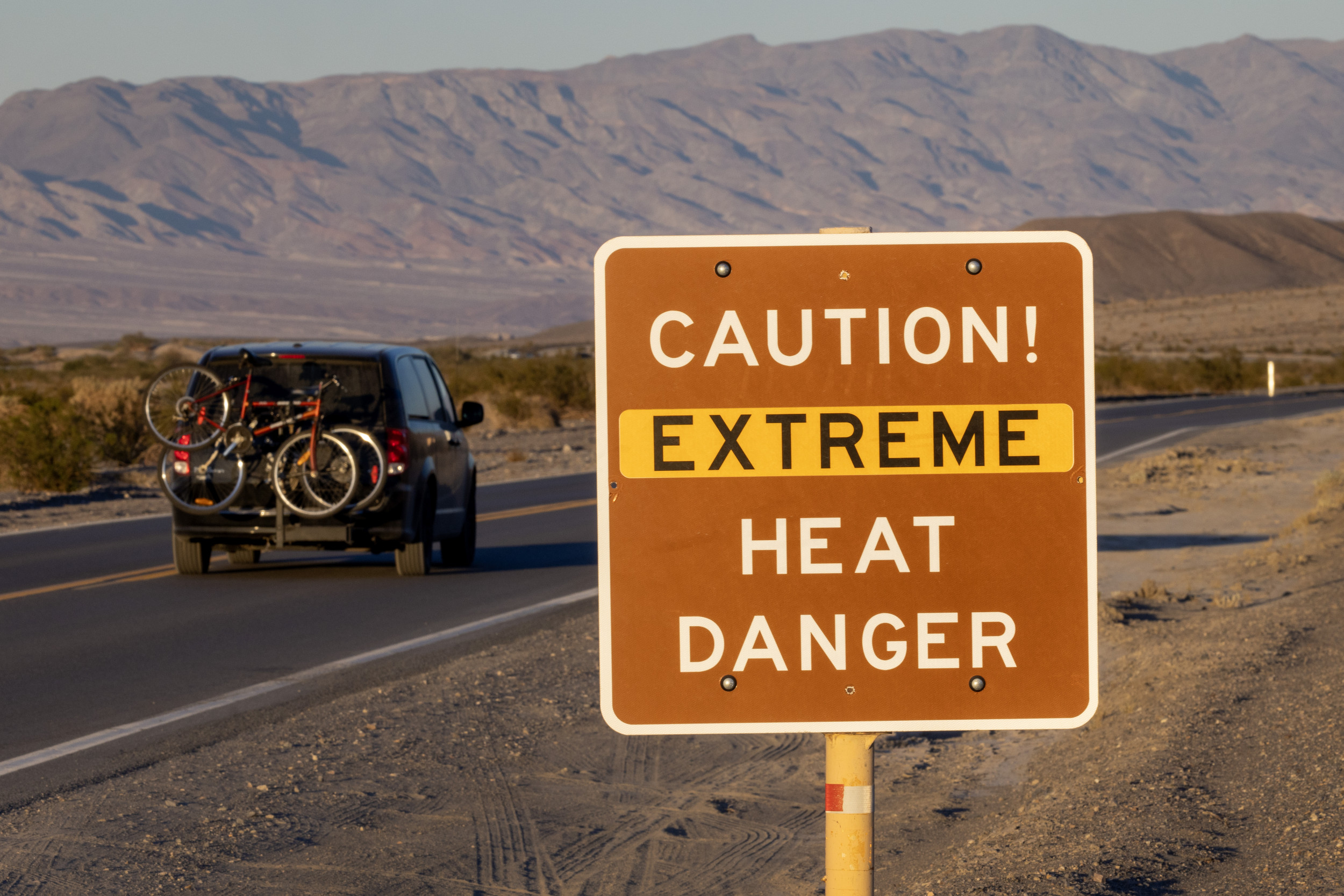
Water supplies are being targeted by fighters in Syria and Iraq and water systems in the Middle East are approaching breaking point due to conflicts there, the International Committee for the Red Cross (ICRC) warned in a report released on Wednesday.
Aging water systems, rising demand for food and growing populations were already putting Middle Eastern and Gulf water supplies at great risk. Add to that the fighting in Syria and the violence being wrought by ISIS militants, which has caused millions to uproot, and the region faces a critical situation.
"Using access to water as a tactic or weapon during conflict, or targeting water or energy facilities, not only violates the laws of armed conflict, it has very harmful effects on the lives of people whose health is already extremely vulnerable," Robert Mardini, ICRC's head of operations for the Middle East, said in a statement on Wednesday.
There is a trend, the ICRC says, showing water and sanitation infrastructure being deliberately targeted and water networks sometimes being used as "a political or military bargaining chip."
In Iraq, Syria, Jordan, Lebanon, Yemen and the Palestinian territories, water infrastructure is old and in dire need of maintenance that hasn't happened due to lack of funding or conflict. An increase in the demand for water has also led to overpumping and more water is being diverted from the agricultural sector to meet the needs of a growing population.
Pressure on water resources can be felt throughout the region, including in Jordan, which has seen a 10 percent population rise in four years, and Lebanon, where the population has exploded by 25 percent in four years, due to the influx of refugees. By 2025, Sanaa, the capital city of Yemen, a country the United Nations says is on the brink of civil war, is forecast to run out of water. (Newsweek wrote about tensions over water in Yemen in January.)
Attacks on water plants can also damage sanitation, electrical and energy supplies, and quick fixes and substitutes aren't always available or affordable, according to the report.
"There is a general lack of respect among warring parties for the protected status of water installations," the report says.
Health hazards due to sewage and wastewater not being properly treated are also common. Water networks are also losing large amounts of water from poor maintenance and damage from conflict: in 2014, officials in Syria estimated that 60 percent of pumped water was lost from leakage due to damage to the system.
"There are reasons to be hopeful," said Mardini. "This is largely a problem caused by humans and it can be solved by humans. But it depends on the support and concerted efforts of everyone, from the international community to local communities. The problem and the solutions belong to everyone, and we must make sure the water flows for everyone".
Uncommon Knowledge
Newsweek is committed to challenging conventional wisdom and finding connections in the search for common ground.
Newsweek is committed to challenging conventional wisdom and finding connections in the search for common ground.
About the writer
Before joining Newsweek, Lucy Westcott was an editorial fellow at The Wire. Previously a United Nations correspondent for the Inter ... Read more





